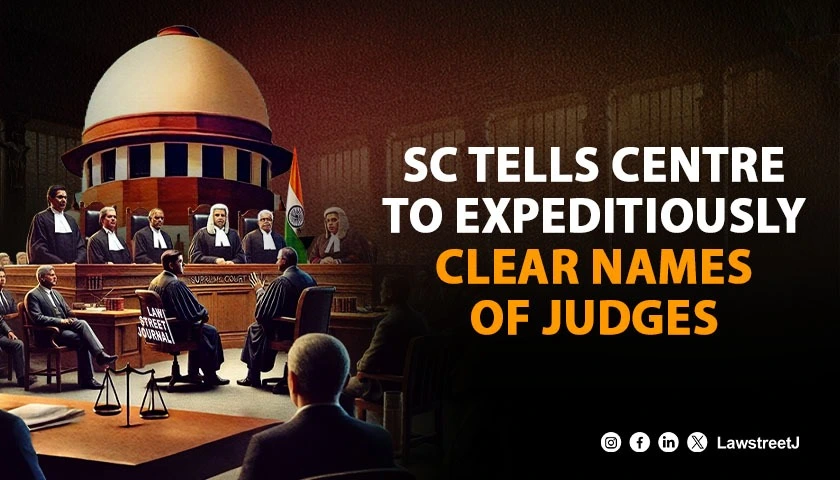NEW DELHI: The Supreme Court has told the Centre to expeditiously clear names for judges' appointments to mitigate issues of vacancies and pendency as the high courts have more than seven lakh criminal appeals pending before them.
A bench of Justices Abhay S Oka and Ujjal Bhuyan pointed out the Allahabad High Court with 2.7 lakh cases pending had a sanctioned strength of 160 judges but was functioning with only 79 judges.
"It has a huge pendency of criminal appeals. Hence this is an issue which will have to be handled at a different level," the bench said.
Taking up a suo motu petition relating to delay in bail processes and expeditious release of undertrials, the bench noted that the Bombay High Court with a sanctioned strength of 94, was functioning with only 66 judges, and the Calcutta High Court, with a total strength of 72 judges, was functioning with 44 judges. The bench observed the Delhi High Court currently had 41 judges against the prescribed 60 judges.
"This is one aspect where the central government needs to act and ensure that recommendations of the collegium are cleared expeditiously. We hope and trust that the pending proposals will be cleared by the central government at the earliest," the bench said.
The bench said two days ago, recommendation of the Supreme Court collegium for appointment of high court judges was made public on the top court website.
"Four recommendations of 2023 and 13 recommendations made in 2024 are pending with the Centre. The most recent recommendations made on September 24, 2024 are also pending," the court said.
The bench noted as on March 22, the total number of criminal appeals was 7,24,192, in the high courts.
The bench noted the Madhya Pradesh has pendency of 1,15,382 cases, the Patna High Court 44,664; Punjab & Haryana High Court 79, 326 and Rajasthan High Court over 56,000 the Bombay High Court 28,257, Chhattisgarh High Court more than 18,000 cases.
The court also felt that adjournments were one of the main reasons behind the rising pendency. It suggested for appointing legal aid lawyers if there was repeated non-cooperation by advocates appearing for the accused.
It was necessary for all high courts to incorporate digitisation of criminal records and asked high courts to place on record the action plans within four weeks for it, the court said.















